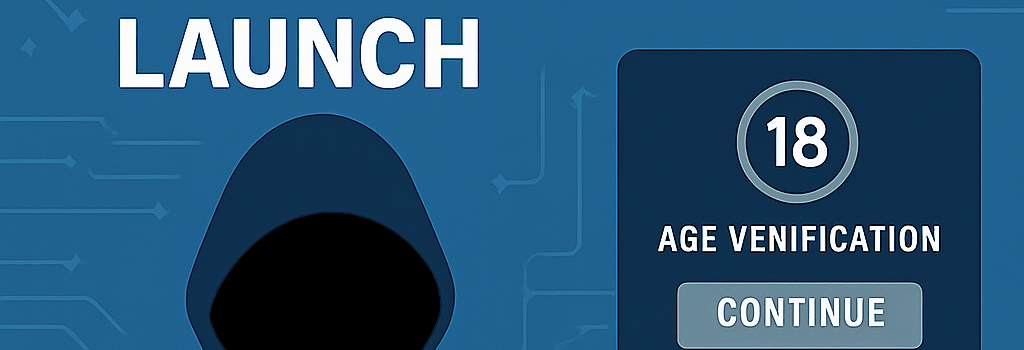UK VPN Use Surges After Online Safety Act Age Verification Launch

Following the UK’s Online Safety Act coming into force on July 25, 2025, consumer demand for virtual private networks (VPNs) and related circumvention tools surged across the country. Major VPN providers report triple- and quadruple-digit increases in sign-ups almost immediately after age checks became mandatory for adult websites, while security experts warn of a widening cat-and-mouse game between regulators and online users.
1. Surge in VPN Downloads and Sign-Ups
According to analytics firm Sensor Tower, five of the most popular VPN apps climbed into the top 10 free charts on Apple’s UK App Store within 48 hours:
- Average day-over-day increase on iOS: 100%
- Average day-over-day increase on Android: 5%
Proton VPN announced on X that UK-origin sign-ups jumped 1,400% within minutes of the law taking effect, and have since stabilized at an 1,800% daily increase. NordVPN reports a 1,000% spike in subscription purchases, while AdGuard VPN and Windscribe cite 2.5× growth in installs and new accounts.
2. How VPNs and Circumvention Tools Work
VPNs use IPsec, OpenVPN, WireGuard or IKEv2 protocols to establish encrypted tunnels between user devices and remote servers. This process:
- Encrypts all outbound and inbound packets with AES-256 or ChaCha20-Poly1305 ciphers.
- Replaces the user’s public IP with that of the VPN exit node.
- Masks DNS queries via DNS-over-HTTPS (DoH) or DNS-over-TLS (DoT) to prevent eavesdropping.
Besides VPNs, many UK users are experimenting with:
- Tor Browser for multi-hop, low-bandwidth anonymity.
- Proxy services that rotate IPs automatically.
- Creative workarounds, such as submitting in-game selfies from Death Stranding to fake age verification.
3. Regulatory Context and Industry Response
The Online Safety Act mandates “highly effective” age checks on sites hosting adult content, self-harm, suicide or eating disorder material. Verification methods include:
- Government ID upload and biometric selfie analysis.
- Third-party age verification services using zero-knowledge proofs to confirm age without storing personal data.
As of this week, Ofcom reports over 6,600 adult websites have implemented age gates. Platforms like Reddit, X and Bluesky are rolling out similar controls. Microsoft has also begun voluntary age checks for Xbox Live users in the UK.
4. Technical and Privacy Challenges
While age verification can block underage access, experts caution it may also create new attack vectors and privacy risks:
- Centralized ID databases are attractive targets for nation-state actors and criminals.
- Biometric analysis raises questions around face recognition accuracy and bias.
- Deep packet inspection (DPI) systems might be deployed to detect and throttle VPN traffic.
“Quick technological fixes come with long-term consequences,” says Daniel Kahn Gillmor, senior technologist at the ACLU. “We risk normalizing intrusive systems that could morph into broader censorship tools.”
5. Global and Technical Countermeasures
Residents in heavily censored regions like China and Iran have long used VPNs, domain fronting and meek transports via Tor for unobstructed access. In response, some governments employ:
- Deep packet inspection (DPI) to fingerprint VPN protocols.
- TCP-level connection resets on suspected circumvention traffic.
- IP blocking of known VPN endpoint addresses.
VPN providers counter with:
- Obfuscated servers that disguise VPN packets as regular HTTPS.
- Adaptive port hopping and stealth modes.
- Encrypted SNI (Server Name Indication) to obscure destination domains.
6. Looking Ahead: Legal and Technical Evolution
With the UK paving the way for regulated age checks, other jurisdictions—such as the EU under the Digital Services Act—may follow suit. Key considerations for policymakers and technologists include:
- Balancing child protection with digital privacy and freedom of expression.
- Designing decentralized or privacy-preserving age verification frameworks.
- Anticipating the next generation of circumvention tools, from AI-powered proxy networks to blockchain-based identity attestations.
As the interplay between regulation and technology intensifies, both sides will continue iterating. Users will innovate new bypass techniques while regulators explore AI-driven content inspection—fueling a cycle of escalation that could reshape the future of Internet governance.
“Governments must avoid knee-jerk digital surveillance in the name of safety,” warns Seema Shah, VP of research at Sensor Tower. “True protection comes from robust social support, not simply more scrutiny.”